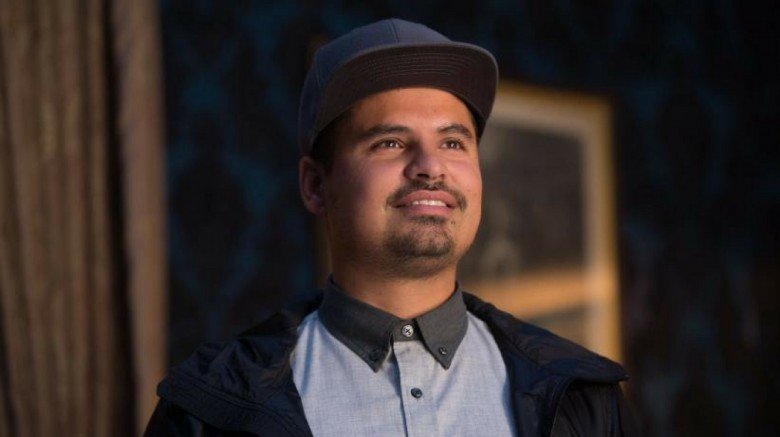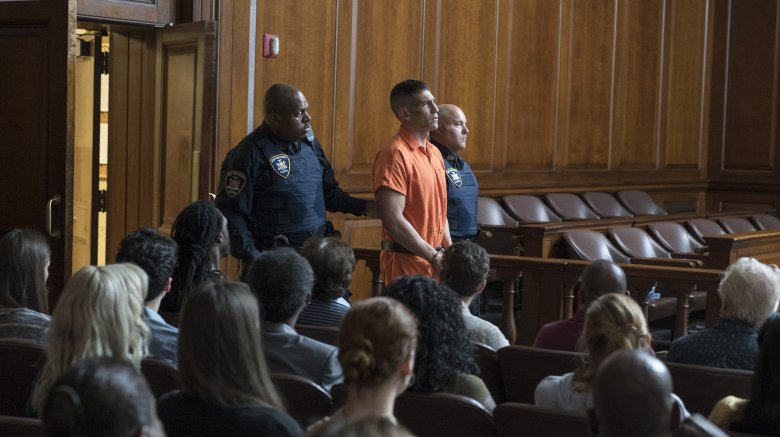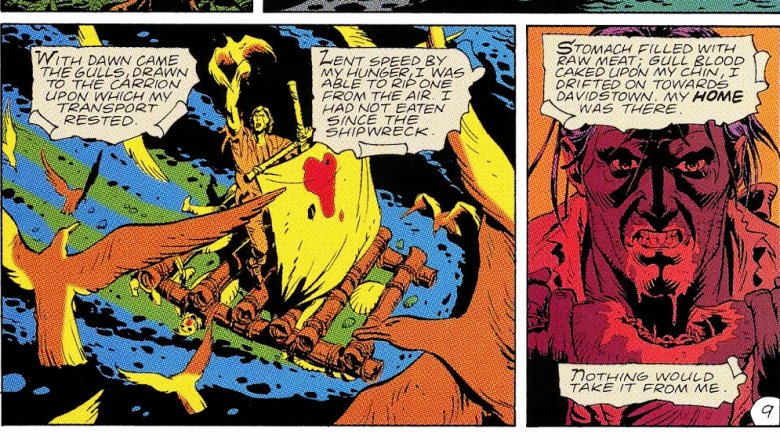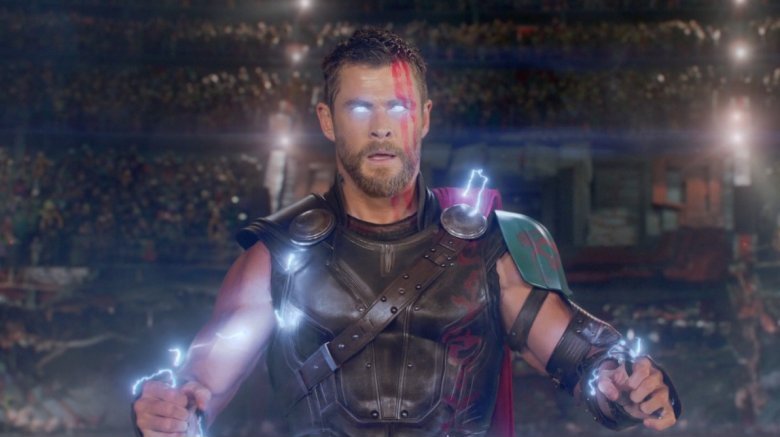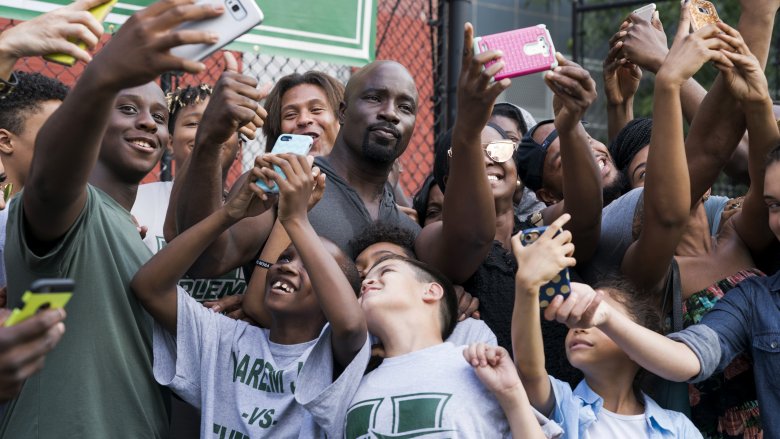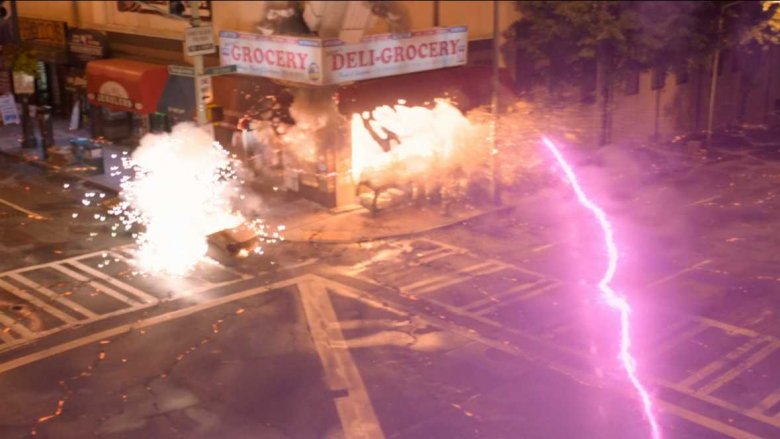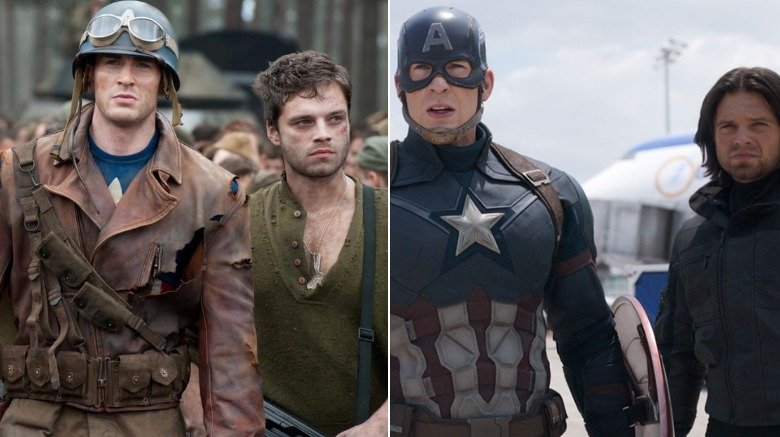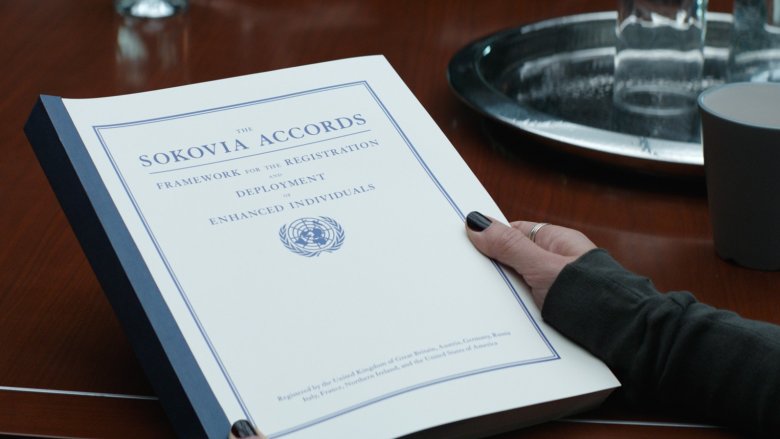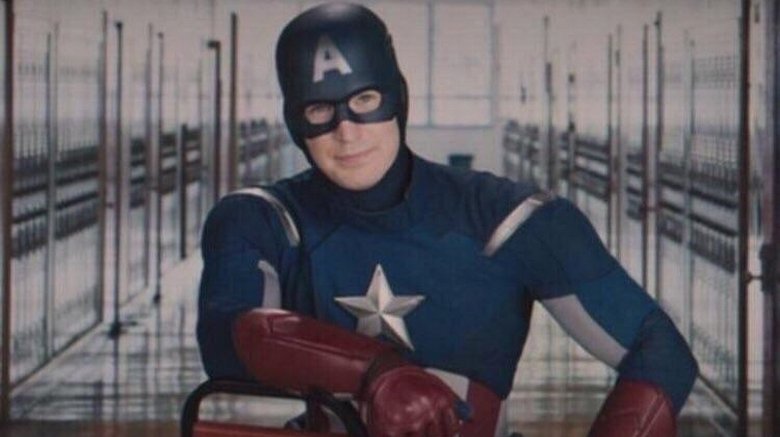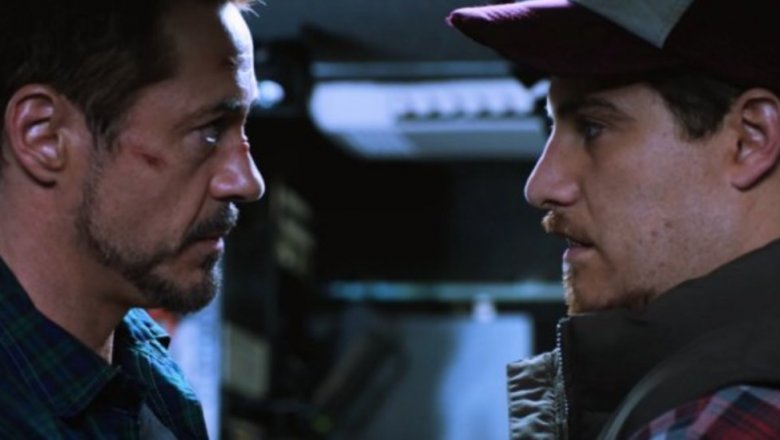How Your Life Would Be Different If You Lived In The MCU
Since the mid-'80s, a growing number of comic books have posed the question of what superheroes would be like in the real world. Of course there was Alan Moore and David Gibbons' seminal Watchmen, but that wasn't the end. J. Michael Straczynski brought us Rising Stars and later Supreme Power. Mark Millar and John Romita Jr. impressed hordes of fans with Kick-Ass and its sequels and spinoffs. There are plenty of other examples; unsurprisingly, common threads tend to be more profanity, more blood, more heroes in need of intense therapy, and fewer survivors.
What about the opposite? Instead of asking what superheroes would be like in the real world, what about exploring what our lives would be like in the fantasy world of superheroes? How would our day-to-day be different in a world that survived the Battle of New York in Avengers? How would our jobs, our businesses, our institutions, and our society as a whole be different if you could follow thunder gods on Instagram or if you had to worry about whether your homeowner's policy covered "Acts of Hulk"? What if every time a friend of yours acted strange — along with possibilities like "maybe they're doing drugs again" or "maybe they're depressed" — one viable possibility was "maybe they're secretly dressing up in an animal-themed costume every night and drop-kicking muggers?"
Read on to find out how your life would be different if you lived in the MCU.
Reasonable Doubt
While superheroes are often called "crimefighters," in the MCU keeping criminals behind bars would be tricky.
First, prosecuting a criminal takes more than a good uppercut. How easy would it be for any defense lawyer to get charges thrown out if their client was found webbed to a telephone pole? You could argue that being chased by a guy dressed like a spider constitutes "cruel and unusual" treatment all on its own.
There's a less obvious reason that was brilliantly illustrated in Kurt Busiek's comic Astro City. A two-part story followed the defense attorney of a mobster accused of murdering his girlfriend; the body was never found, but enough blood was recovered to infer she was dead. The attorney succeeded in acquitting the mobster by recounting the story of a hero named Supersonic who was believed dead but eventually was proven to be alive. The attorney argued that in a world where impossible things like that happened all the time, there was no way to prove that his client's girlfriend was dead, much less that he killed her.
The MCU is a world where invisible wizards have fights in surgical theaters and heroes fight aliens on the backs of flying whales. What excuse couldn't work in that world? Listen, we're not saying that in the MCU when you're late to work you can just say, "sorry, there was a giant sea monster on the highway," and it'll all be good. But at the very least, your boss would have to check the news before docking your pay.
Would real superheroes kill superhero entertainment?
Some people don't like the MCU. Marvel Studios has its share of critics. If you want to stop superheroes from saturating the entertainment market, one answer might be to give the world real superheroes.
In the alternate history of Alan Moore and David Gibbons' Watchmen, superhero comics were extinct. With real superheroes in the news, the popularity of superhero fiction waned. Pirate comics ruled the spinner racks instead; in Watchmen, Moore and Gibbons included panels from a pirate comic called The Black Freighter.
In the MCU, superheroes wouldn't vanish from popular entertainment, but they'd be presented differently. Rather than fictional heroes, the MCU's heroes would become reality TV stars. Studios would throw gobs of money at Avengers to film a season of them living in a house with a couple of their old enemies. Documentarians would follow around wannabes hunting radioactive spiders or trying to find vats of radioactive waste to hurl themselves in. Howard the Duck would break down in an interview while confessing to his long history of substance abuse.
Any popular entertainment involving fantasy and science fiction would need to evolve, particularly anything with aliens. The civilians of the MCU watched Chitauri race through New York City on flying jetskis. They ran from a giant humming donut hovering over Greenwich Village. Who's going to care about Fox Mulder's theories on X-Files? "I'm telling you, Scully! They're real!" Yeah, dude. We know. We found half of one on the subway after the battle. Chill out.
Crisis of faith
An issue many religious people in the MCU would have to wrestle is how to avoid suffering a crisis of faith.
A foundation for every major monotheistic religion is that there is one and only one God. If you're a devout Christian and Thor saves you from a bunch of robots, how do you resolve what you believe with what you experienced? Cap handles it well. When Black Widow calls Thor and Loki gods in Avengers, Cap just brushes it off and says, "There's only one god, ma'am. And I'm pretty sure he doesn't dress like that." But not everyone's faith has Cap's fortitude.
Some people would have to question everything. Even if they didn't believe Thor or Loki were "actual" gods, it wouldn't be easy for everybody to conclude that the impossible wonders of the MCU didn't contradict their beliefs. Some would lose their faith. Some would make the superheroes their objects of worship. Cults devoted to Thor and Captain America would spring up — like the Hulk cult that transformed John Eisenhart into a future version of the Hulk in 2099 Unlimited #1, or the Sons of Batman in Batman: The Dark Knight Returns. Most heroes would distance themselves from the cults. Though if an Iron Man cult emerged, he'd probably check out at least one or two of their parties.
Social Media
Just like the real world, in the MCU social media would be both a powerful tool and a PR minefield. Heroes would use it to broadcast life-saving information to civilians. Tweets from @theREALAvengers would read, "Ppl of Denver, asteroid en route!!!!! Please evacuate safely!!!!" Tweets from @theREALDrStrange would warn, "NYC residents who have turned into man-wolves, pls report to 177A Bleecker St for treatment. Don't eat anyone lol!" Heroes would use social media for intelligence gathering, but someone like Tony Stark's A.I. Friday would have to filter everything. They'd get tips on escaped criminals and escalating catastrophic conditions, but without some kind of intuitive filter they'd have to sift through countless bogus tips, challenges to fights, marriage proposals, sexual propositions, sidekick offers, and of course deposed princes with lucrative business opportunities.
Inevitably, there would be at least one superhero who'd lose his social media cool. It would start innocently with random tweets that got more attention than they foresaw. @theREALWinterSoldier: "Accidentally shot @theREALFalcon in the butt. Whoops! #fakeanotherbrainwashing." Eventually it would turn ugly, with the hero unprepared for the trolls. Without anyone to punch, they'd unleash a stream of angry and offensive tweets. Since @theREALHulk probably doesn't type that well, the smart money is on @theREALThor. The Asgardian isn't used to being challenged by someone who wasn't throwing a flagon of mead on the floor while they did it. On the other hand, it might be okay. He probably wouldn't understand half the insults. The more he read "cool story bro," the more captivating he'd think he was.
Who profits?
Running a business, especially one in a major metropolitan city that sees lots of superhero action, would be an even riskier and more expensive proposition in the MCU. Remember the restaurant the heroes gather in during Netflix's Defenders? Is there anyone who thought that place would survive the night? Think of all the businesses left in ruins in New York after Avengers, or in Sokovia, Johannesburg, and Seoul in Avengers: Age of Ultron. How many flights were canceled after the big airport fight in Captain America: Civil War?
Insurance rates for businesses in big, superhero-heavy cities would skyrocket. The inflated rates alone would fold smaller businesses. Insurance companies might even deny claims if they learned business owners willingly allowed someone like Luke Cage or Steve Rogers onto their property.
On the other hand, the MCU would offer business opportunities the real world never could. Marvel Comics created a number of fictional superhero-themed businesses, like a company specializing in cleaning up after superhero battles called Damage Control. The comic book Luke Cage famously began his career as a "Hero for Hire," and a number of Heroes for Hire team titles have come and gone over the years.
The MCU would also have its unique brand of lucrative scams. With so many people idolizing the Avengers, there would be hordes of regular people who would want a taste of the "super," and plenty of super-snake-oil salesman ready to take their money in exchange for useless herbal concoctions and lies.
Through it all, Baskin-Robbins would thrive. Because Baskin-Robbins don't play.
Who wants to live forever?
In 2016, a Reddit user famously calculated that — had the events of the MCU been real — the United States Army would owe Captain America over $3 million in back pay. The fact that Army spokesman Wayne Hall explained in great detail to Business Insider why the anonymous Reddit user's figures weren't completely accurate highlights exactly how much more complex life would be in the MCU. The MCU includes people like Captain America, Bucky, and Thor (and soon, maybe, Wolverine), and they laugh at your puny lifespan.
Someone like Thor or Wolverine would be both a gift to historians and, potentially, their bane. World War II historians would be filling Cap's inbox with questions. Provided he'd resolved whatever long-term amnesia issues he was suffering from that particular week, Logan could give info dating back to the 1800s. And Thor? In Avengers: Infinity War, Thor tells Rocket he's over 1500 years old. He could give historians firsthand accounts of eras from which getting even written records is tricky. There's a downside to that, too: Thor could potentially do irreparable damage to the study of history if his sense of humor is in full gear. Thor gets invited to a lecture, he shows up, and he tells everyone British soldiers rode dinosaurs during the Revolutionary War. Laugh at him all you want. He's a superhero, an Avenger, a freaking god, and he was the only one alive at the time. Thor says they rode dinosaurs? They rode dinosaurs. Next!
Who watches the watchmen?
At this point, the idea of the government interfering with superheroes is nothing new. In Watchmen, Civil War, and even the relatively lighthearted Incredibles, we've seen the government step in and say no to superheroes — at least to those who weren't getting paychecks from them.
In the MCU, the very existence of superheroes would be a source of daily controversy, and with good reason. Not only are civilians regularly killed indirectly in superhero bouts, but more than a few have been directly killed by them. The Hulk murdered people in Johannesburg. Hawkeye murdered people in Stuttgart. Both were mentally altered, but if one of your parents or kids is one of the casualties, you're not going to care about that.
More than regulation, the government would heave tons of resources toward using superheroes and villains for their own ends in the MCU. They'd try to recruit them, both overtly and covertly, and at the same time would do everything they could to reproduce and weaponize their powers. Why settle for one Captain America? He might get mad at you and stop taking your orders. Reverse engineer the stubborn jerk and give his muscles to someone who won't ask so many questions.
Stop, drop, and roll
In Spider-Man: Homecoming, we saw Captain America in his Avengers costume narrating videos for public high school students. If you went to a high school in the MCU or worked any kind of office job, you'd see a lot more videos like that.
Working in an office setting in the real world means, among other things, mandated training. Prevention of Workplace Violence, Sexual Harassment in the Workplace, Fire Safety, Workplace Ethics, Cybersecurity Awareness, and more. If you lived in the MCU? Well, add to that list at least one hour per year of "Staying Safe During Enchanced Human Conflict."
Smiling local actors would act out improbable office events. With a calm narrator describing everything on the screen, the actors would demonstrate how — with the right tools – anyone can escape a deadly superhero battle. Inevitably, a learning mnemonic acronym would be introduced. "So remember, if Captain America and Batroc the Leaper are tearing up your office; first you should Shut up, because you could distract the hero at an important moment! Hide! It doesn't make you a coward; you're too insignificant to help! Accept your fate! Because the second they showed up, you lost all the control you thought you had! Don't call the authorities! They're just more potential hostages! Expect to die! Because it's very likely! And finally Stop crying! It won't help, and it just makes it easier for Batroc to find you. So don't forget! In case super people start a fight in your office, remember to bring your S.H.A.D.E.S.!!!!!"
Copycats
People want to be superheroes. Here in the real world, there are people who desperately want to be superheroes and even supervillains. How desperately? Well there's a guy in Venezuela named Henry Rodriguez who endured extensive facial reconstruction — including having his nose cut off — so he could look more like the Red Skull (though apparently shaving went too far). So, you know. How desperately? More than a little.
Think about that obsession, and transplant it into an MCU where super powers are actually possible. How much further would someone like Rodriguez be willing to go, and how much would he spend, if he had real-life examples convincing him that his greatest desire was achievable?
In the MCU there would be a new type of self-harm: self-induced origin story. Victims would electrocute themselves, set themselves on fire, freeze themselves, leap off buildings, invite the rabid bites of wild animals, attempt rituals to summon twisted demons from other dimensions, drown themselves, swallow magnets, have weapons grafted into their skin, and gargle radioactive waste like it was Scope all in the hopes that they would be blessed with super powers allowing them to rise above the tedium of life. Chemical plants would have to hire extra security just to keep people from killing themselves. Otherwise they'd just run into the plants and leap into the nearest bubbling vat.
The truly tragic part? If you use the '60s Marvel comics to gauge the outcome of all those attempts to get powers? Only, like, 70% would work. Maybe 75%. Okay, 85%, but that other 15% would die bad.
